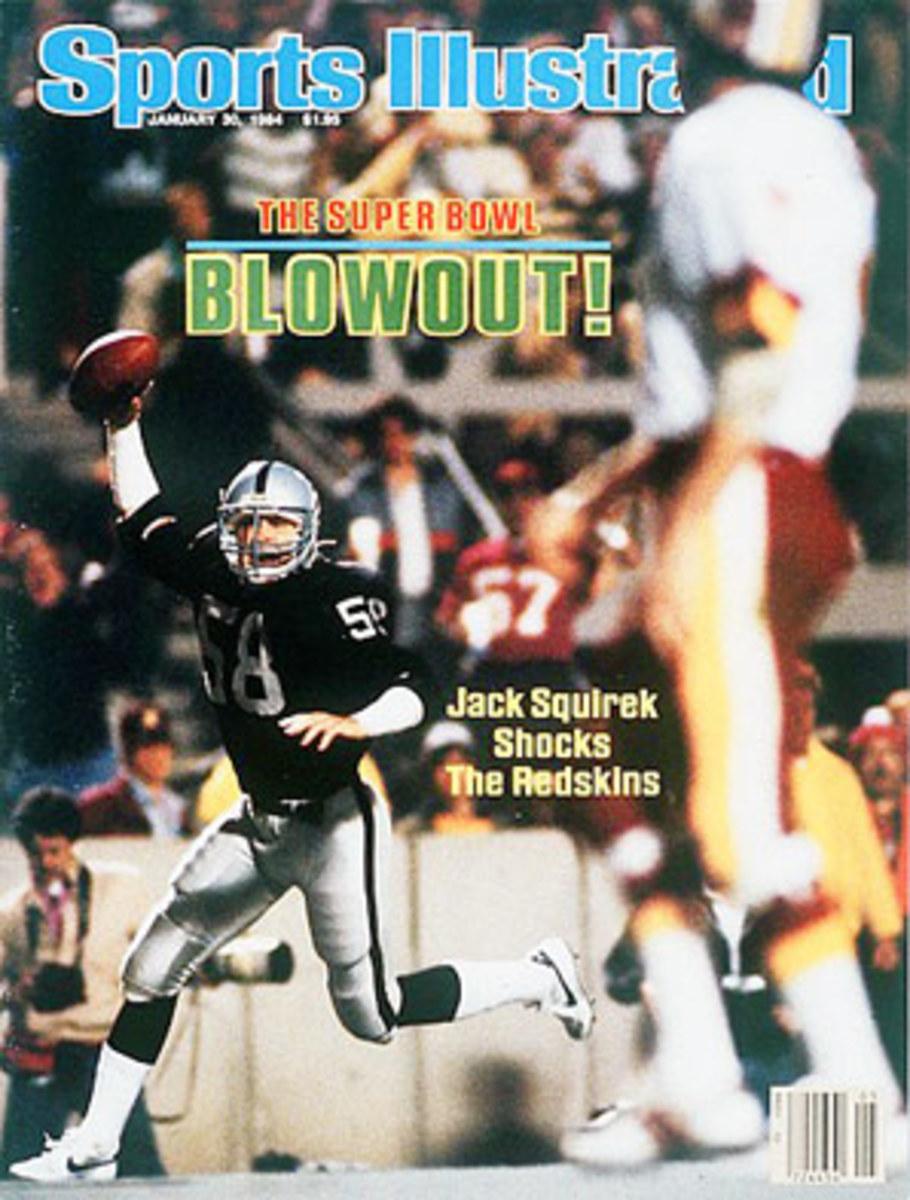Twenty-six years after Super Bowl moment, Squirek lives in obscurity


In sports, if something is uttered enough times, and with enough conviction, we are required to believe it.
So what if, say, the San Francisco Giants didn't quite shock the world by winning the World Series? The team's players insist they shocked the world, the team's staffers insist they shocked the world, the team's fans insist they shocked the world.
And so it is written -- the San Francisco Giants shocked the world.
This sort of linguistic nonsense rules the athletic landscape, taking hold of our senses and turning rational, wise thought into clichés and generalities. In the real world, something being said does not mean it is actually true.
In sports, however, words often equal reality.
This being Super Bowl week, one thing we've heard often -- and always hear -- is the potential magnitude of such a game on a participant's existence. Make a big play in the Super Bow and your life will never be the same. Make a big play in the Super Bowl and you will never have to pay for another meal. Make a big play in the Super Bowl and you are legend.
Jack Squirek, for one, made a big play in a Super Bowl.
A huge play.
On January 22, 1984, the Los Angeles Raiders and Washington Redskins squared off in Super Bowl XVIII in Tampa. Heading into the game, Squirek was no different than Green Bay's Robert Francois or Pittsburgh's Stevenson Sylvester are today -- he was a little-known reserve linebacker hoping to avoid embarrassing mistakes while contributing to a triumph. During the team's media day earlier in the week, Squirek was interviewed a whopping four times. He didn't mind. "More than anything," he says, "I just wanted to win and be a Super Bowl champion."
With 12 seconds remaining in the first half and Los Angeles leading 14-3, the Redskins took over at their own 12-yard line. Instead of simply running out the clock, Joe Gibbs inexplicably called "Rocket Screen" -- a screen pass from quarterback Joe Theismann to halfback Joe Washington coming out of the backfield. Anticipating the play, Charlie Sumner, the Raiders' linebackers coach, rushed the speedy, athletic Squirek onto the field as a replacement for Matt Millen. When Theismann dropped back to throw, he turned left, and tossed the ball into Squirek's hands. The linebacker made the catch and jogged five yards into the end zone, untouched.
In the hours and days that followed, Squirek and Raiders halfback Marcus Allen became the victorious faces of Super Bowl XVIII. Squirek's play was beamed across the nation, and his picture graced the January 30, 1984 cover of Sports Illustrated. "It was all very amazing," he says. "I was staying at the LAX Hilton at the time, and I came down to the magazine stand in the lobby and saw the cover. It blew me away."
Squirek believed the Super Bowl was merely the beginning of further glory. It wasn't. The football career he had long dreamed of came and went like an afternoon sun-shower -- four full seasons with the Raiders, followed by a cup of lukewarm coffee with the Dolphins in 1986. As is the case with most of his ilk, injuries did Squirek in. He fractured his jaw in a preseason game not long after the Super Bowl and never fully recovered. "I lost a lot of weight and some of my edge," he says. "I hated to admit it, but I did."
Somehow, 26 years have passed. Squirek is almost 52, with a son in college and a daughter in high school. He lives outside of Cleveland and owns and operates an office cleaning company, Squirek Services.
When asked whether his life permanently changed because of the interception, Squirek fails to pause. "Oh, definitely," he says. "Definitely."
Upon elaborating, however, Squirek can only go so far. "I never thought back then that people would still remember me," he says. "They don't recognize me by face, but my name rings a bell with some folks, and probably 20-30 times a year someone says something. It's always nice."
And?
"That," says Squirek, "is the bulk of it."
Somewhere, Timmy Smith and Mike Jones and Jim O'Brien and Phil McConkey are likely nodding along. Squirek says he cherishes the fleeting moment in the sun, says he wears the Super Bowl ring a couple of times per year, and always with great pride. He looks back at those Raiders with glee and bliss and compassion and pride.
But save for sporadic recognition, has his life changed forever?
Well, no.
Is he upset?
Not at all.
